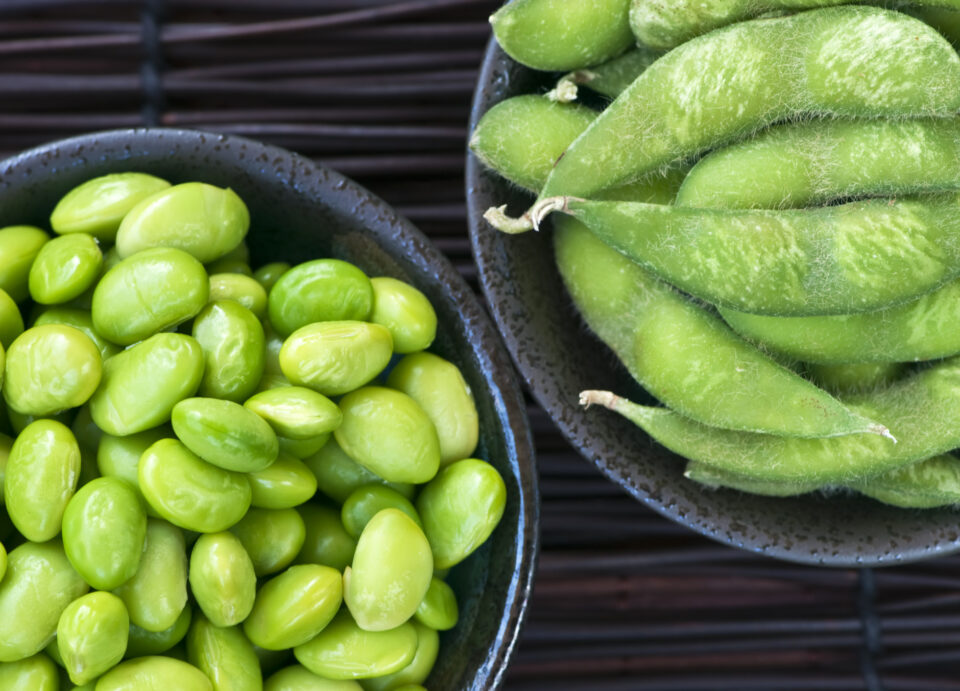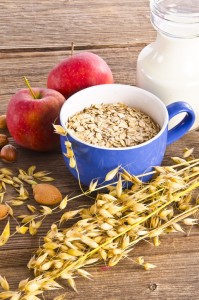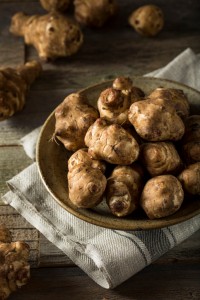Prebiotics: Why Do We Need Them?


Prebiotics are the fuel that feed probiotics and make them effective in supporting human health – especially gut health. But what are they and where do you find them? Questions abound about this frequently talked about but often misunderstood component of food that all of us need for good health.
 Do not get prebiotics confused with the very similar-sounding probiotics. Prebiotics exist naturally in food as non-digestible component that supports good bacteria in your lower gut. They are a type of carbohydrate that cannot be broken down. Prebiotic food compounds pass through the small intestine undigested so that good bacteria in the colon including bifidobacteria and lactobacilli can ferment them there. Don’t worry; this fermentation is a good thing and a natural process for the body.
Do not get prebiotics confused with the very similar-sounding probiotics. Prebiotics exist naturally in food as non-digestible component that supports good bacteria in your lower gut. They are a type of carbohydrate that cannot be broken down. Prebiotic food compounds pass through the small intestine undigested so that good bacteria in the colon including bifidobacteria and lactobacilli can ferment them there. Don’t worry; this fermentation is a good thing and a natural process for the body.
Prebiotics Deliver ‘Functional Fiber’
Prebiotics are like fiber; in fact, all prebiotics are fiber but not all fiber is a prebiotic. Prebiotics could also be called “functional fiber” meaning that they play a function in human health. Think of them as food with a specific purpose. Officially, prebiotics are fructooligosaccharides which includes inulin and galactooligosaccharides. No need to worry about the scientific title; prebiotics is a well-accepted term.
Fermentation of prebiotic foods within the colon leads to health benefits such supporting healthy bowel movements, better pH balance in the colon, and production of short chain fatty acids. These special fatty acids act similarly to dietary fiber because they also help lower cholesterol which is a heart-healthy side effect of these foods in the diet. There is even some promise in current research that suggest prebiotics might protect against colon cancer though more studies are needed on this topic in the future.
What Foods Contain Prebiotics?
 You can find prebiotics in common foods like bananas, onions, garlic, leeks, asparagus, sunchokes (Jerusalem artichokes), soybeans, oats, chicory and whole-wheat based foods.
You can find prebiotics in common foods like bananas, onions, garlic, leeks, asparagus, sunchokes (Jerusalem artichokes), soybeans, oats, chicory and whole-wheat based foods.
Aside from the fact that these foods that contain prebiotics are rich in fiber, vitamins, minerals and antioxidants, they also have been shown to aid in gut health. There is evidence that prebiotics may help ease traveler’s diarrhea or relieve constipation. This process also helps prevent dangerous bacteria from entering the GI tract. If you regularly eat these healthful veggies and grains, it is likely that you are getting a daily dose of prebiotics. You can find inulin and other prebiotics in supplement form but unless a doctor is suggesting them for you based on your gut health needs, the best focus is to incorporate whole food sources daily.
Know the Safety Considerations
There are safety considerations for prebiotics, however, including gastrointestinal issues. For some people, the use of fructooligosaccharides can cause flatulence, belching, abdominal pain, and/or bloating. You may have heard of the popular “Low FODMAP Diet” which actually removes foods rich in prebiotics as they cause discomfort or digestive problems for some people. If you have chronic issues such as gas, bloating, diarrhea or constipation, it is important to seek medical support because these problems could stem from so many aspects of health.

Raw Organic Jerusalem Artichoke Sunchokes
Though there is more to learn in the future about prebiotics, current research is promising concerning GI health, cardiovascular health, the immune system, cancer prevention and inflammation. Best of all, the foods that contain prebiotics are healthy whole foods packed full of nutrition. Enjoy!
Resources
Natural Medicines Database. Prebiotics. https://naturalmedicines.therapeuticresearch.com/databases/food,-herbs-supplements/professional.aspx?productid=450. Updated 5/27/2015. Accessed 12/24/16.
Academy of Nutrition and Dietetics. Prebiotics and Probiotics: Creating a Healthier You. http://www.eatright.org/resource/food/vitamins-and-supplements/nutrient-rich-foods/prebiotics-and-probiotics-the-dynamic-duo. Updated 10/10/16. Accessed 12/24/16.
Slavin J. Fiber and prebiotics: mechanisms and health benefits. Nutrients. 2013;5(4):1417-35.